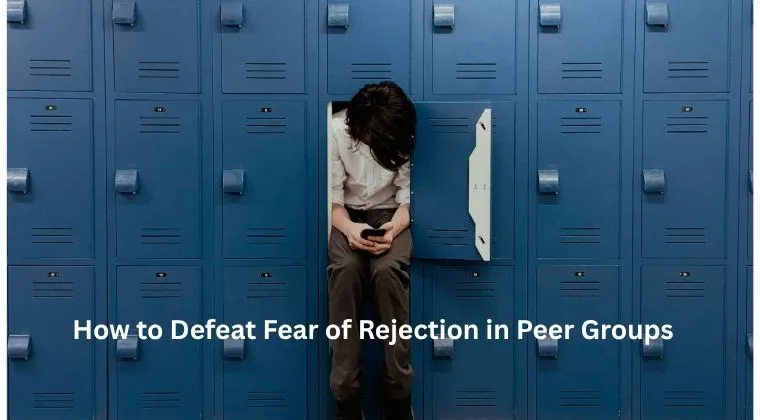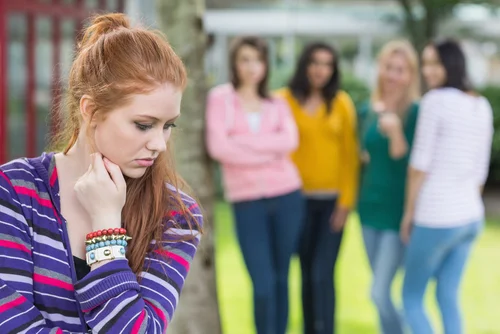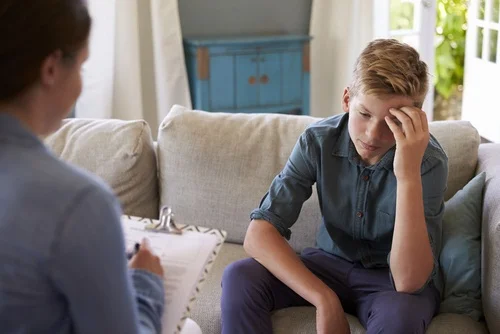+1 845 259 2974 (11 a.m to 7 p.m CST)
How to Defeat Fear of Rejection in Peer Groups

Feeling scared of being rejected is very common, especially for kids and teens who wanna fit in with their mates. This fear can make you do stuff you don’t really wanna do, just to be accepted. But don’t worry, you can learn how to beat this fear and feel more confident.
Why Do Kids Fear Rejection?
Kids and teens wanna belong and be liked by their friends. Social media makes this feel even bigger because when they see others posting about fun parties, risky stuff, or popular trends, they feel left out if they don’t join in. This is called virtual peer pressure or FOMO (fear of missing out). Seeing others’ pics or updates can make kids fret that they’re the only ones not having a laugh.
"If you wanna know more about how social media adds to peer pressure, check out Peer Pressure and Teens: Social Media is the Culprit. "
How Fear of Rejection Affects Kids
When kids and teens worry about being left out or not liked, they often feel anxious, down, and lonely. This can knock their confidence and make them stop chatting or act differently just to be included. Sometimes, it even makes them feel depressed or constantly worried.
Some might try too hard to fit in, while others might start pushing people away and feel really alone. This fear changes not just how they feel but also how they behave and make friends. Knowing this is the first step to getting over it.
"Also, plenty of kids feel rubbish about their bodies thanks to peer pressure and constant comparing. This can make the fear of rejection even worse. You might want to see Is Poor Body Image Caused by Peer Pressure? to learn more. "
Easy Ways to Beat Fear of Rejection
Here’s some tips to help you feel braver and less scared of getting rejected:
1. Be Yourself and Know Your Worth
You don’t have to change just to fit in. Real friends like you for who you really are. Think about what’s great about you and what makes you unique.
2. Learn to Say No Confidently
It’s totally fine to say no if you don’t wanna do something. Practice saying it kindly and stand by it. Some friends might not like it, but that’s okay, it helps you find friends who respect you.
3. Build a Support Crew
Hang out with people who care about you, family, teachers, or mates who accept you. Chatting with people you trust helps you feel less lonely and worried.
4. Cut Down on Social Media Time
Social media can make you feel left out or pressured. Try not to spend loads of time comparing yourself to others online. Instead, do stuff that makes you happy and helps you grow.
5. Talk to Trusted Adults
Parents, teachers, or someone you trust can give advice about peer pressure. Talking openly makes you feel safer and understood.
6. Change Negative Thoughts
When you start worrying about being rejected, remind yourself that not everyone will like you — and that’s okay. Being rejected doesn’t mean you’re not important. Be kind to yourself and try to think positively.
Why Parents and Adults Matter
Parents and adults are really important in helping kids and teens deal with fear of rejection. Teens face lots of challenges fitting in, and having caring adults to turn to makes a big difference.
1. Giving Emotional Support and Understanding
When adults listen without getting mad or judging, teens feel safe to share what’s on their mind. This helps reduce loneliness and build confidence.
2. Keeping an Eye on Things
Parents who gently watch what teens are up to, their friends, hobbies and online life, can spot problems early. This lets them help before things get worse. It shows teens that adults care.
3. Teaching How to Make Good Choices
Adults can help teens think before they act, teach them how to say no nicely, and help pick friends who respect them. This builds teens’ confidence and helps them avoid doing things just to fit in.
4. Encouraging Being Different and Valuing Yourself
Adults should remind teens their worth isn’t about being popular or copying others. Finding your own interests and talents builds strong confidence, and fear of rejection shrinks.
5. Leading by Example
Kids watch what adults do. When parents are kind, honest and respectful, teens learn how to be good friends and handle rejection gracefully.
6. Offering Extra Help if Needed
Sometimes fear of rejection causes serious worries like anxiety or depression. Adults can spot when a teen needs a bit more help from a counsellor or doctor. Getting help early makes it easier to cope.
Want to see why it’s so important for parents to be involved? Check out Peer Pressure vs. Parental Influence: Who is the Winner?.
To Sum Up
Fear of rejection is something many kids and teens go through, but it doesn’t have to rule your life. Be yourself, don’t be afraid to say no, stick with people who support you, and take breaks from social media to feel stronger. Parents and adults are there to help too.
Remember, you’re great as you are, and true mates will always accept you.





















